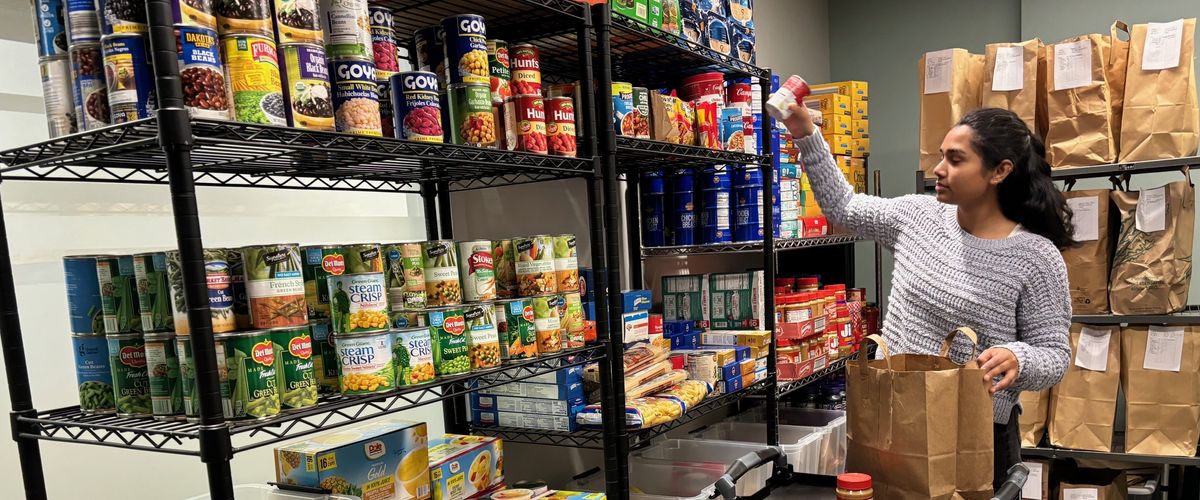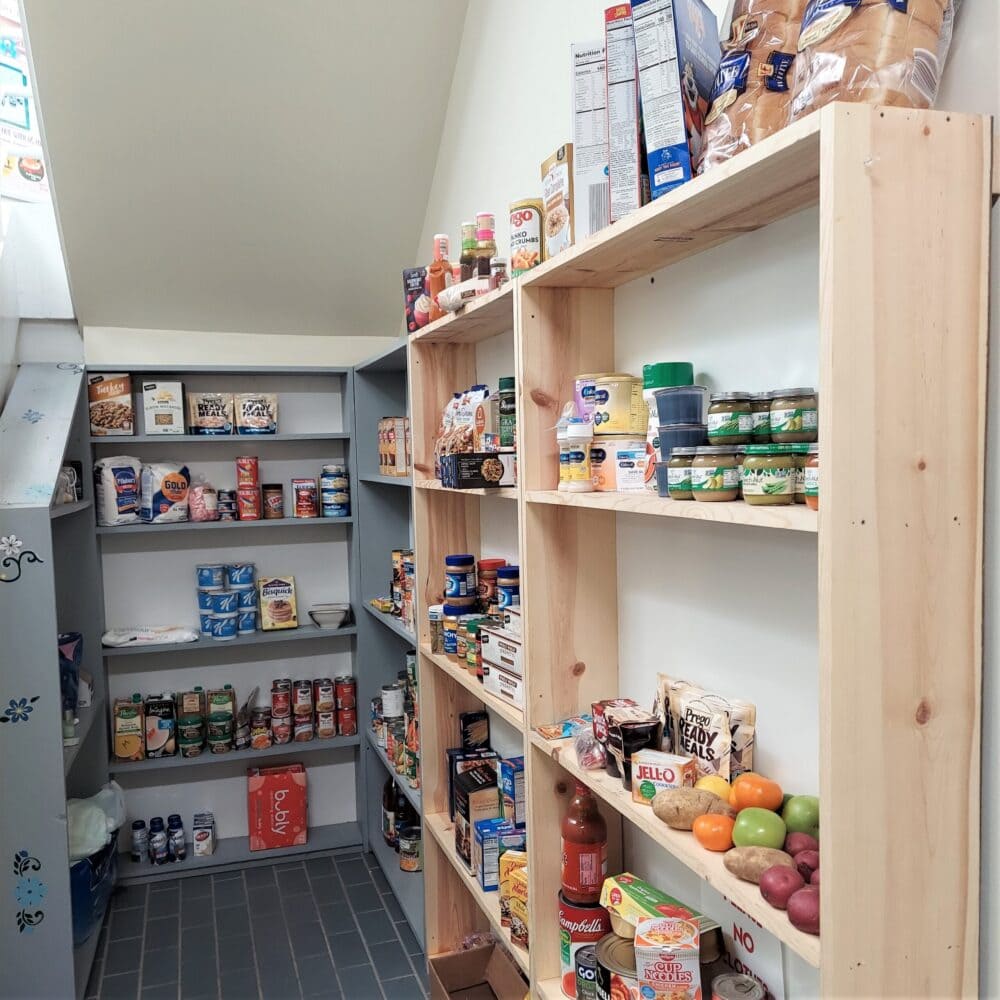The Duty of Food Pantry Lockhart in Supporting Low-Income Families
The Duty of Food Pantry Lockhart in Supporting Low-Income Families
Blog Article
How Food Pantries Supply Crucial Resources for Households in Situation
Food kitchens function as an important lifeline for households experiencing crisis by using not only food yet likewise a series of necessary sources made to sustain their immediate and long-lasting demands. These community-based companies give access to healthy options, curricula, and references to added solutions that can enhance household security. Understanding the complex function of food pantries increases essential concerns about their impact and the broader neighborhood dynamics at play. Exploring these aspects discloses a complicated internet of support that extends much past plain food distribution. What does this mean for families in crisis?
Understanding Food Insecurity
Food instability, a pushing problem influencing numerous households, refers to the lack of consistent accessibility to adequate food for an active, healthy and balanced life. This problem can originate from different variables, consisting of economic instability, joblessness, and rising living costs, which limit people' capability to buy or obtain healthy food. As a result, families encountering food insecurity often rely upon inadequate food sources, resulting in poor nutritional options and adverse health outcomes.
The effects of food instability prolong beyond prompt cravings. It can negatively affect kids's development and development, contributing to behavioral and cognitive problems. Adults experiencing food instability might deal with chronic wellness issues, such as excessive weight, diabetes, and cardiovascular conditions, as they resort to less costly, much less nourishing food choices.

Providers Used by Food Pantries
Attending to food instability needs a diverse strategy, and food pantries play an important duty in providing immediate relief to family members in dilemma. These necessary solutions supply a variety of sources intended at relieving appetite and supporting general wellness.
Largely, food kitchens distribute healthy food things, consisting of fresh produce, tinned products, and non-perishable items. Many pantries focus on healthy and balanced alternatives, recognizing the value of appropriate nutrition in maintaining psychological and physical health. Additionally, some food kitchens use customized programs dealing with details populaces, such as families with young kids or senior citizens, making sure that the one-of-a-kind nutritional requirements of these teams are satisfied.
In enhancement to food circulation, numerous cupboards give extra services, such as access to nutrition education and learning workshops, food preparation courses, and recipe-sharing efforts. These programs empower households to utilize and make educated choices cupboard resources successfully. Additionally, some food kitchens work together with local organizations to offer aid in locations like financial proficiency, task training, and real estate assistance, addressing the more comprehensive obstacles that add to food instability.
With these detailed solutions, food cupboards not just alleviate appetite yet likewise foster resilience and self-sufficiency in families dealing with challenging scenarios.
The Significance of Neighborhood Support
Community assistance is important in combating food insecurity, as it promotes a network of resources and assistance that extends beyond the prompt offerings of food kitchens. This collective structure involves neighborhood organizations, organizations, and volunteers that add time, funds, and items to boost food kitchen operations and outreach efforts.
When neighborhoods collaborated, they develop a durable safety and security web for families in dilemma. Support from neighborhood services can bring about contributions of excess food and economic payments, which help preserve pantry inventories and expand solutions. Furthermore, partnerships with schools and health organizations can assist in education around nourishment and health, empowering families to make enlightened choices.
Additionally, community involvement motivates a sense of belonging and reduces the stigma frequently associated with looking for support. They are more likely to gain access to food cupboard sources without anxiety or humiliation when people really feel sustained by their next-door neighbors. This common technique not just addresses immediate needs yet additionally helps build strength within households, cultivating long-term stability. Eventually, the significance of area assistance can not be overemphasized; it is the backbone that strengthens the job of food pantries and boosts their influence on those dealing with food instability.
Exactly How to Access Food Pantry Resources
Accessing food cupboard sources can substantially minimize the worries faced by family members in crisis. To begin, people seeking assistance must identify regional food cupboards, which are frequently listed on neighborhood solution websites or can be located through an easy internet search (Food Pantry Lockhart). Several cupboards are affiliated with this page larger companies, such as the United Means or Feeding America, which can offer more advice


In addition, numerous food kitchens provide solutions past food circulation, such as dietary education and learning and references to various other social services. When visiting a kitchen., households must ask regarding these extra sources.
Effect On Household Well-being
The accessibility of food pantry sources plays a critical function in enhancing the overall health of households in dilemma. Accessibility to nutritious food relieves instant hunger, which is foundational for physical health. When households obtain appropriate food support, they experience a decrease in tension relevant to food insecurity, enabling them to focus on various other crucial aspects of their lives, such as employment and education and learning.

The influence of food cupboards extends beyond the individual to the family unit. By making sure that standard dietary demands are met, households can involve much more fully in their everyday lives, promoting much better academic efficiency for youngsters and improved task stability for adults (Food Pantry Lockhart). Inevitably, food cupboards act as vital lifelines, substantially adding to the total health and resilience of family members dealing with situation
Final Thought
Food pantries work as vital lifelines for families experiencing dilemmas by addressing instant food insecurity and advertising long-term stability. Through the arrangement of nutritious food, educational programs, and references to extra solutions, these cupboards add considerably to the general health of individuals and family members. Community assistance remains important for the sustainability and performance of these sources. Inevitably, food kitchens play an important role in cultivating durability and improving the lifestyle for those in need.
Food pantries serve as a critical lifeline for families experiencing situation by using not just food yet likewise a variety of essential resources developed to support their lasting and prompt needs.Mainly, food pantries distribute healthy food products, consisting of fresh fruit and vegetables, tinned items, and non-perishable items. Some food cupboards collaborate with neighborhood organizations to provide aid in areas like economic proficiency, job training, and real estate assistance, attending to the broader obstacles that contribute to food instability.
Eventually, the importance of community assistance can not be overemphasized; it is the foundation that reinforces the job of food cupboards and improves their influence on those facing food insecurity.
Food kitchens offer as essential lifelines for households experiencing situations by dealing with instant food instability and advertising long-lasting stability.
Report this page